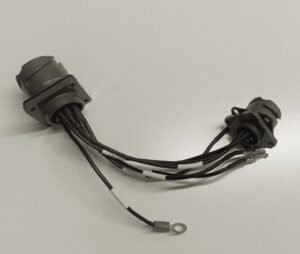Agriculture is the oldest industry known to mankind. However, it has changed and evolved drastically since its inception. Like other industries, agriculture too has undergone a surge of technological intervention and advancement.These advancements have significantly increased efficiency, productivity, and yields, which are essential for meeting global food demand.

These improvements have been driven by substantial infrastructural developments, with electrical connectors playing a pivotal role.
Originally developed and designed for rugged environments such as defense, aerospace, or heavy machinery, these connectors are now making significant strides in transforming agricultural practices worldwide.
These connectors adhere to global military standards and are hence engineered to withstand extreme conditions—from temperature fluctuations to dust, moisture, and mechanical stress – common environmental problems faced by agriculturalists.Hence, these attributes make them a useful component where reliable equipment operation is crucial for optimizing yields and minimizing downtime during planting and harvesting seasons.
Future Horizons: Robotics and Smart Farming
The future of agriculture increasingly embraces robotics and smart farming technologies, where military connectors continue to play a pivotal role. These connectors support advanced applications like robotic automation for tasks such as pruning, weeding, and harvesting.
Some of the agricultural equipment that use Mil-Grade Connectors –
- Laser Land Levellers
- Farm Tractors
- Drones
- Sprayers
- Irrigation Systems
Innovation for Sustainable Agriculture
In essence, military-grade connectors have helped push agricultural practices forward by enhancing precision, and efficiency across diverse farming operations. As agriculture continues to evolve with technological advancements, the role of robust connector solutions will be critical in driving sustainable farming practices in order to meet global food demand effectively. As we look towards the future, the integration of military connectors in agriculture will not only improve operational capabilities but also play a key role in advancing agricultural sustainability and resilience. Consequently, they can contribute to a more efficient and prosperous agricultural sector worldwide

